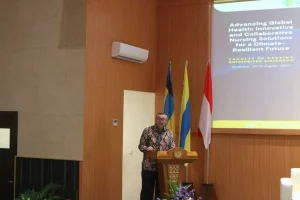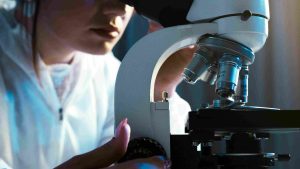Antibiotic resistance is becoming one of the most critical health threats worldwide. It’s a silent crisis, brewing within us, often unnoticed until it’s too late. This issue is not only about the misuse of antibiotics but also involves the complex ecosystem of bacteria residing in our gut. Recent research conducted in Indonesia sheds light on this growing problem. In our research we collected stool samples from individuals in coastal and highland areas and analyzed them for antibiotic-resistant genes. The findings were alarming: nearly all samples contained genes resistant to commonly used antibiotics, such as tetracycline, beta-lactams, and macrolides. This indicates that our gut bacteria are adapting and potentially passing these resistant genes to more harmful bacteria.
Vancomycin, a last-resort antibiotic used to treat severe infections, was also part of the study. Intriguingly, vancomycin-resistant genes were present in the gut bacteria of all participants. Even more concerning was the discovery of these genes in Gram-negative bacteria, which are typically harder to treat due to their robust cell wall structure. This suggests that our gut bacteria could be a reservoir for spreading antibiotic resistance. So, how does this happen? The overuse and misuse of antibiotics, often due to lenient regulations and lack of awareness, play a significant role. In some places, antibiotics can be purchased without a prescription, leading to unnecessary and improper use.
Additionally, antibiotics are widely used in agriculture, further promoting resistance. The consequences of antibiotic resistance are severe. Infections that were once easily treatable with antibiotics could become life-threatening. For example, common ailments like urinary tract infections or respiratory infections might no longer respond to standard treatments. This can lead to longer hospital stays, higher medical costs, and increased mortality. The study from Indonesia highlights the need for stricter regulations and better awareness regarding antibiotic use. It also underscores the importance of continued research. Understanding how resistance genes spread within our gut microbiota and beyond can help in developing strategies to combat this threat.
What can we do to help? Firstly, only use antibiotics when prescribed by a healthcare professional. Avoid pressuring your doctor for antibiotics if they say you don’t need them. Secondly, practice good hygiene to prevent infections and reduce the need for antibiotics. This includes regular handwashing, safe food practices, and keeping vaccinations up to date. Moreover, supporting policies that promote the prudent use of antibiotics in agriculture is crucial. By limiting the use of antibiotics in farming, we can reduce the risk of resistant bacteria entering our food supply. In conclusion, antibiotic resistance is a hidden danger lurking in our gut. It’s a global issue that requires immediate action. By being mindful of our antibiotic use and supporting better regulations, we can help preserve the effectiveness of these vital medications for future generations. Understanding and addressing this silent crisis is crucial for safeguarding our health and that of our children.
Author: Anjar Tri Wibowo M.Sc., Ph.D
Lecturer of Department of Biology, Faculty of Science and Technology, Universitas Airlangga









